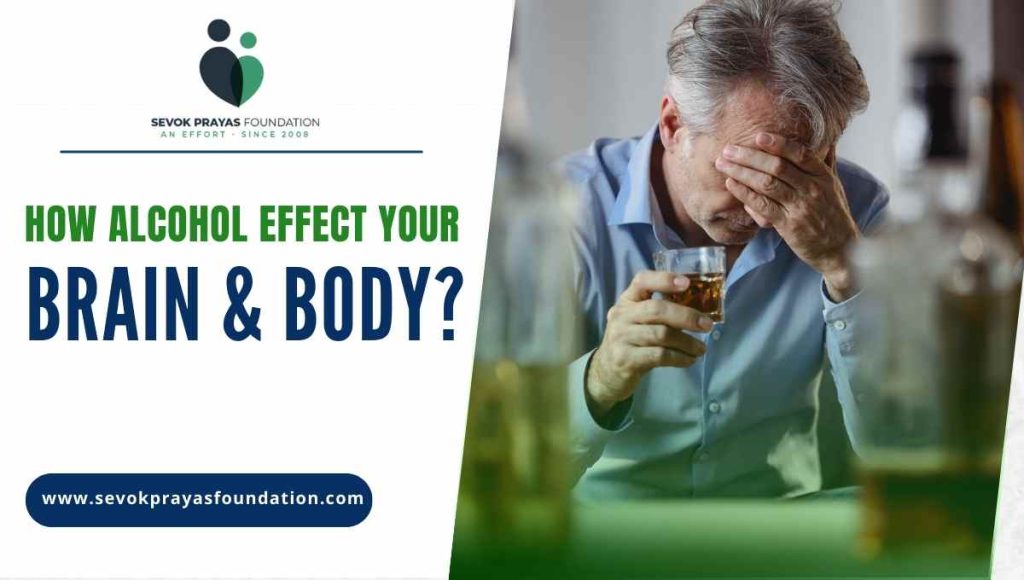Alcohol, a ubiquitous part of many cultures worldwide, has a profound impact on the human body and mind. While it’s often associated with relaxation and socialisation, the effects of alcohol consumption extend far beyond the initial buzz. Understanding the science behind how alcohol affects your brain and body is crucial for making informed decisions about drinking habits and recognizing the potential risks involved. Let’s delve into the intricate mechanisms at play, drawing insights from Alcohol Rehab Guide and scientific research.
Brain Chemistry: How Alcohol Alters Neurotransmitters
Alcohol’s influence on the brain begins with its interaction with neurotransmitters, the chemical messengers that facilitate communication between brain cells. Upon consumption, alcohol disrupts the delicate balance of neurotransmitters, primarily targeting gamma-aminobutyric acid (GABA) and glutamate.
- GABA:- Alcohol enhances the effects of GABA, a neurotransmitter that promotes relaxation and reduces anxiety. This leads to feelings of calmness and euphoria, contributing to alcohol’s initial sedative effects.
- Glutamate:- Conversely, alcohol inhibits glutamate, an excitatory neurotransmitter responsible for cognitive functions such as learning and memory. By dampening glutamate activity, alcohol impairs cognitive functions, resulting in slowed reflexes, impaired judgement, and memory lapses.
Brain Structures Affected by Alcohol:-
Beyond neurotransmitter modulation, alcohol also impacts specific brain structures, further exacerbating its effects on cognitive and behavioural functions.
- Prefrontal Cortex: Responsible for decision-making, impulse control, and rational thinking, the prefrontal cortex is particularly vulnerable to alcohol’s effects. Reduced activity in this region can lead to impaired judgement and increased risk-taking behaviour.
- Hippocampus: Critical for memory formation and spatial navigation, the hippocampus suffers from alcohol-induced dysfunction, resulting in short-term memory loss and cognitive deficits.
- Cerebellum: As the brain’s control centre for balance and coordination, the cerebellum is adversely affected by alcohol, leading to unsteady gait, slurred speech, and impaired motor skills.
Physical Effects on the Body:-
In addition to its neurological impact, alcohol exerts a range of physiological effects on the body, affecting various organs and systems.
- Liver: As the primary site of alcohol metabolism, the liver bears the brunt of alcohol’s toxic effects. Chronic alcohol consumption can lead to liver inflammation, fatty liver disease, cirrhosis, and even liver failure.
- Heart: While moderate alcohol intake may confer cardiovascular benefits, excessive consumption can elevate blood pressure, increase the risk of heart disease, and contribute to arrhythmias.
- Immune System: Alcohol weakens the immune system, making individuals more susceptible to infections and impairing the body’s ability to heal and recover from illness or injury.
Understanding the Risks: Seeking Help and Support
While occasional and moderate alcohol consumption may pose minimal risks for some individuals, excessive or prolonged use can have devastating consequences for both physical and mental health. Recognizing the signs of alcohol dependence or addiction and seeking help from qualified professionals is essential for those struggling with alcohol use disorder (AUD).
Conclusion:-
In conclusion, the science behind alcohol’s effects on the brain and body underscores the need for informed decision-making and responsible consumption. By understanding the intricate interplay of neurotransmitters, brain structures, and physiological systems affected by alcohol, individuals can make healthier choices and seek support when needed. Whether it’s moderating alcohol intake, seeking treatment for AUD, or supporting loved ones in their recovery journey, education and awareness are vital tools in addressing the complexities of alcohol use and its impact on society.


